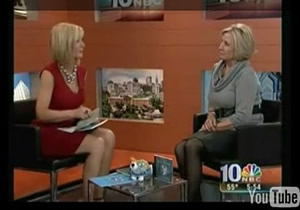 So you are getting a divorce. How can you help your children deal with what is coming?
So you are getting a divorce. How can you help your children deal with what is coming?
How will your children react and what can you do? The good news is that kids are resilient. The bad news is that a lot of the effect that your divorce will have on your kids depends how BOTH parents act during and after the divorce process.
The age of your children will dictate a lot about how they act and react. Initially, depending on the ages of the children, there will probably be tears.
Some children will try to change the subject as if not talking about divorce, will make the reality untrue. Some children won’t show much of a reaction at all. Parents please don’t assume that a lack of apparent emotion means that they don’t care or not affected.
A great way to understand some of the younger children’s inner feelings is to have them draw pictures of divorce. A lot of knowledge can be gained from the pictures children draw.
If you see your children being unusually aggressive or angry, ask questions like. “You have been very angry lately. Does that have anything to do with Mom’s and Dad’s divorce?” Take time to listen to them and their concerns. It is so important that they understand that you are still there for them. Each parent needs to reassure each child that he or she is loved and that will never change even after the divorce.
Some of the children have been waiting or actually hoping to hear the news because they were so uncomfortable listening to the fighting and dealing with the mood swings of one or both parents. Other children might actually be shocked that their parents are divorcing. Don’t assume that this means you have done a great job hiding your bad marriage. It could be that depending on their ages, they didn’t notice. It could also mean that they just thought that fighting was a part of family life.
A huge way to help children deal with divorce is to have both parents tell the children the same story as to why they are getting divorced. As mentioned in previous blog entries, it is critical that both parents tell the children together.
Older children will usually display more emotion. Often they will ask questions about things like which parent wants the divorce. Often they will become the ally of the parent who didn’t leave but also it happens that they ally themselves with the parent they are afraid of losing.
If both parents say something like, “Mom and Dad are still your parents and we always will be. Neither one of us is to blame for the divorce. It just wasn’t working out as husband and wife but it will always be that we are your mom and dad and we will always be there for you and we will always care about you. Mom and Dad will continue to work together to raise you.”
This way the children don’t take out their anger about the divorce on the parent that becomes the scapegoat. Sadly, too many parents are on a mission to hurt the other parent by badmouthing and placing blame on the other parent. It may work for a while but ultimately the hurt is inflicted on the children. This is one of the most damaging things parents getting a divorce can do to their children.
Photo by Mio Cade

